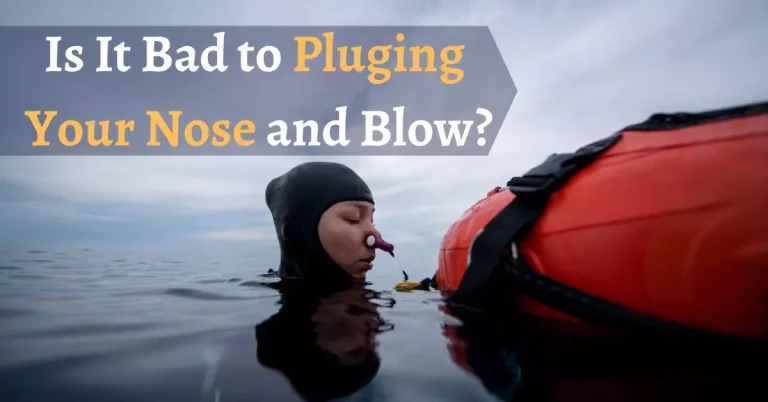How to Snorkel with Glasses?
There are ways to wear eyewear while snorkeling, but it’s important to know what to do and what not to do. Wearing prescription glasses under a diving mask is impossible as water will cloud the mask. You should purchase a diving mask with prescription glass or wear contact lenses.

How to snorkel with glasses or contacts can be a concern for many. The beauty of the underwater world is best experienced with clear vision. Let’s explore the options for optimal visual clarity during your snorkeling adventure.
Is it Possible to Wear Glasses with a Snorkeling Mask?
Wearing prescription glasses under a diving mask is not feasible as the glasses’ handle can break the mask’s seal, causing water to leak and cloud your vision. Additionally, wearing glasses beneath the mask can alter their position, distorting your sight. Consider alternatives such as wearing contact lenses or purchasing the best snorkel mask for glasses.
When light passes through the lens and into the air, it diverges, causing the objects to appear larger than they would on land. This is because the mask’s lens has a higher density than the air’s density inside the mask, and glass and water have similar visual properties. Refraction between water and standard glass occurs naturally in masks, so carefully select the appropriate lens strength.
- Mild Visual Impairments
You may not require additional devices or gear for scuba diving if you have only mild vision problems. Water can magnify and improve mild vision issues, making it possible for you to see better underwater than on land.
Try wearing goggles and assessing your vision before investing in any specialized equipment. However, be honest about any remaining blurriness or vision problems, and consider finding appropriate solutions if necessary.
Is it possible to scuba dive while wearing contact lenses?

There are pros and cons to using contact lenses while scuba diving, and both sides have valid points. One concern is that water can enter and be absorbed by the lenses, increasing the risk of eye infections. On the other hand, some consider soft contact lenses to be safe for scuba diving. The Diver’s Alert Network (DAN) states that soft contact lenses have rare issues, but hard or gas-permeable contacts may cause problems. Disposable contacts are convenient as they can be discarded after use and do not require cleaning.
If you choose to use contact lenses while scuba diving, you should bring lens rewetting drops in case of discomfort due to changes in water pressure. Also, avoid water entering your goggles, as the lenses may float away.
- Diving Goggles with Prescription
If you’re uneasy about the risks of eye infections, a safer and more convenient option is available. Although it may be more costly, investing in prescription diving goggles ensures quality, durability, and comfort.
Prescription diving goggles come in various options, depending on your specific prescription. If you have a common prescription, per-made prescription goggles can be found in specialized diving stores that may already carry your prescription. It’s recommended to try on the best snorkel mask for glasses before purchasing to ensure the prescription is accurate.
For more unique prescriptions or differences between both eyes, customizing a snorkel mask to your prescription is possible. Having a custom-made mask specifically for your vision is a great solution. Some optometrists offer this service, and although it may take some time to get the goggles made, the result will be worth it.
- Scuba Masks with Bifocal Lenses
If you only use reading glasses for small magnifying objects, including small print and underwater creatures, there are stick-on magnifying lenses for your scuba mask. Simply attach one of these lenses to the bottom of your mask to create your scuba bifocals.
People who wear glasses have several scuba diving options, including contact lenses, bifocals, or a prescription diving mask. Wearing glasses should not hinder having fun, as an option is always available.
Is it possible to wear glasses while swimming in a pool?
Snorkeling with glasses or contacts can be a challenge, but it’s possible. If you want to wear glasses while swimming, you’ll need to invest in a pair of swimming goggles designed to keep your glasses in place. There are a few different swimming goggles styles, including those designed to fit over your glasses and others that have lenses that can be custom-made to match your prescription.

Another option to consider is to wear contact lenses while swimming. This can provide clear vision underwater and eliminates the need to wear glasses. However, it’s important to remember that contact lenses can be more difficult to wear underwater, as they can be easily dislodged or damaged by water and chemicals.
If you’re uncomfortable wearing glasses or contact lenses while swimming, you can opt for prescription swim masks. These special masks have lenses that match your prescription and allow you to see underwater. They’re a great option for those with strong prescriptions or who need bifocals, as the lenses can be custom-made to meet your needs.
Optimal Ways to Snorkel With Glasses
Discovering the options for clear underwater vision can be a surprising and exciting experience. Many snorkelers and divers with prescription glasses believe that they can only see clearly with their glasses on the land. Snorkeling without glasses may not be a good experience in scuba diving.
However, various options allow you to enjoy the underwater world with clear vision. From prescription full face snorkel masks to contact lenses, you will find the perfect solution for your snorkeling adventures. So don’t let imperfect vision hold you back from exploring the beauty of the underwater world. Discover the surprising options for clear underwater vision today!
- Personalized Prescription Glasses
Snorkel masks can be purchased with built-in prescription lenses, but only some are suitable for some diver’s eyes. If you have a prescription, there is an alternative to custom prescription masks. You can opt to change the lenses in a non-prescription snorkel mask to match your prescription by sending both the mask and your prescription to a dive shop.
While this option can be expensive, it ensures a clear and stable underwater vision. Before investing in custom lenses, it is recommended to try diving with the mask to make sure it fits comfortably.
- Prescription Contact Lenses
Snorkeling and diving enthusiasts opt for soft contact lenses for their comfort and minimal issues. Hard and gas-permeable lenses, however, are not recommended as they can lead to eye discomfort and blurry vision due to increasing water pressure during deeper dives.
For added safety, those prone to eye infections should use daily disposable lenses. They offer a convenient, single-use solution without cleaning and disinfecting. Choose soft contact lenses for clear underwater vision.

When diving, it’s important to keep your eyes closed if your mask needs to be removed or if it becomes flooded, as this can result in losing your contact lenses. It’s recommended to inform your dive partner that you wear contacts so they can assist you if needed.
After each dive, rinse your eyes and lenses with clean water to prevent infection. Additionally, you should carry extra lenses with you as a backup.
- Detachable Lens Mask
Detachable lens masks are cost-effective for those near- or farsighted; drop-in lens masks allow for quick and easy lens replacement. This option is not recommended for those with astigmatism.
- Bonded Corrective Lenses
The Bonded Lenses and Custom Prescription Lenses options are similar. The main difference between the Bonded technique is that the prescription lenses are trimmed to fit the mask’s shape and then attached to the original lenses instead of being replaced.
However, this method can have drawbacks, as having a differently shaped lens may result in a limited field of view. Additionally, this process is time-consuming and costly, often taking several weeks to complete.
- Magnifying Lenses
This is an affordable solution, but there are better options available. Magnifying snorkel masks are ideal for those who require reading glasses. They are flexible, removable, and reusable circles that can be adhered to the original lenses of the snorkel mask. Many divers use magnifiers to read the screen of their video cameras or dive computers.
- Affordable Solutions
An affordable solution for improving diving visibility is transferring the lenses from old prescription glasses to diving masks. The process involves the following steps: First, place the mask on your face and mark the desired location for the lenses on the outside of the mask using a marker.
Next, remove the mask and place it on a table. Clean the mask and lenses from the old glasses using a dry rag to remove dust. Then, apply a small amount of super glue to the outer edge of the prescription lenses and attach them to the inside of the mask at the marked locations. The process is complete, and you are ready to dive with improved visibility.
You may like also: How To Defog Snorkel Mask?
Final Thoughts
How to snorkel with glasses or contacts? If you’re only planning on having a light swim, you may not need glasses, as water can act as a magnifier and correct nearsightedness to some extent. But if you’re a frequent swimmer who wants to explore underwater or make facial expressions with friends, it’s wise to invest in a pair of goggles, whether standard goggles with contact lenses or custom prescription goggles. The choice is yours.






